Soy is one of the most controversial foods. Is it good or bad for you? Should you eat it on a vegan diet? Let’s talk about myths, nutrition and delicious recipes.
Would you like to go vegan but are unsure because you’ve read that soy might be bad for you?
There are many myths surrounding plant-based protein in general and soy in particular.
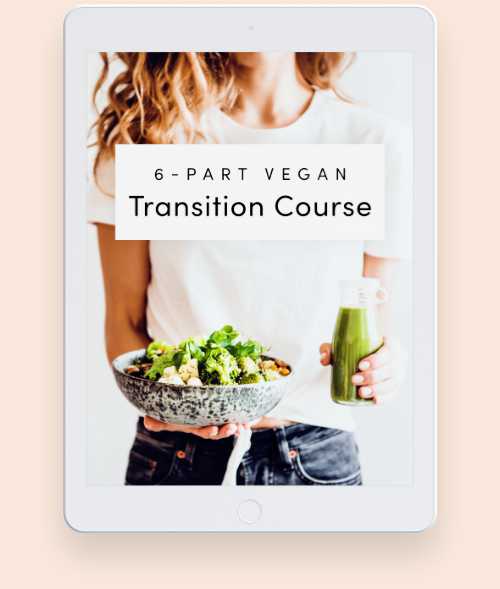
join our free vegan course!
Learn how to thrive on a plant-based diet with practical tips & a 3-day meal plan!
This legume is a popular meat and dairy replacement in plant-based diets, but some people are afraid of consuming soy and think they can never eat a plant-based diet for that reason.
If you want to learn more about veganism and nutrition, read our articles on eggs, bread and oil!
And now, let’s take a closer look at soy.
Is soy vegan?
Yes, soy is vegan! It’s a type of legume that originated from Asia and is rich in protein, fiber, vitamins and minerals.
It is a so-called “complete protein” because it contains all essential amino acids!
However, not all meals or foods made with soy are vegan. Many Asian dishes feature both meat and soy — and some meat alternatives at the store contain dairy or eggs.
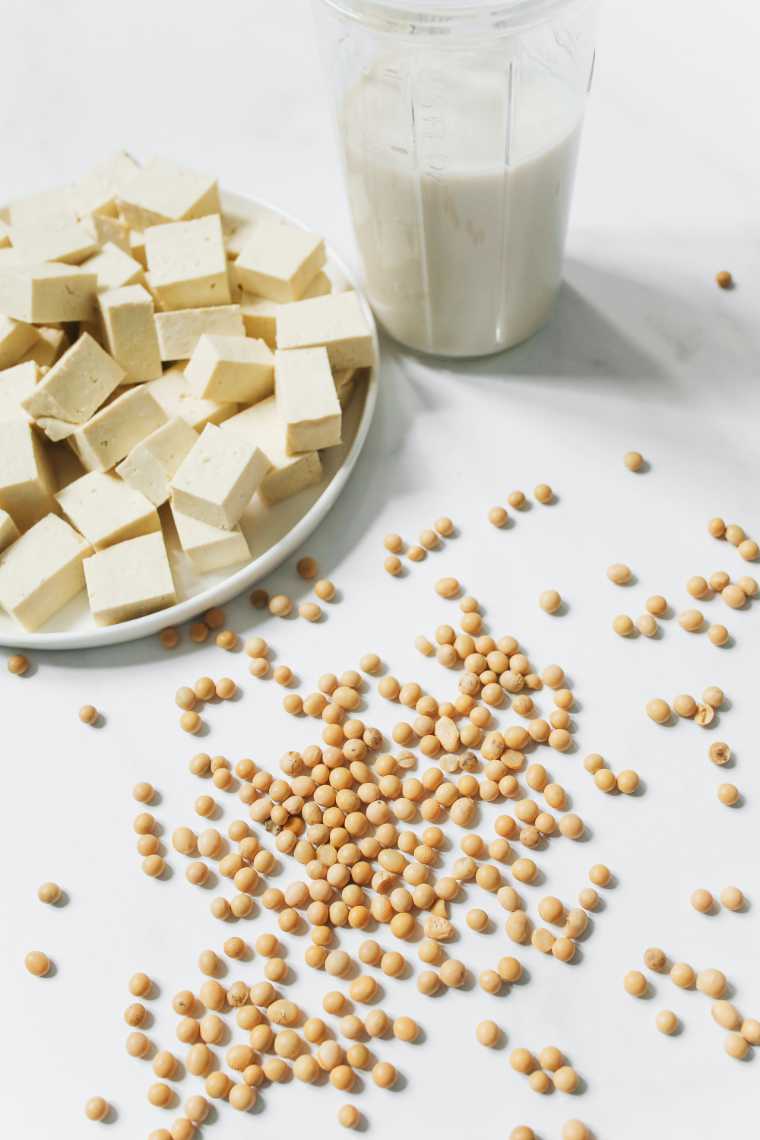
Types of soy products
- Tofu
- Tempeh
- Soy milk
- Soy sauce
- Miso paste
- Edamame
- Textured vegetable protein
- Soy protein isoxlate
- Soybean oil
- Soybean burgers
- Soy cheese
- Soy butter
As you can see, soy is the perfect food for vegans as it can replace animal protein in many delicious ways!
Be sure to check the ingredients when you’re at the store because we’ve seen soy milk that contains cow’s milk or soy-based burgers that are made with egg whites.
Here’s why everyone, not just vegans, should eat more soy.
Benefits of eating soy
Soy has been widely studied for its health effects on the body and results of recent population studies suggest that soy has either a beneficial or neutral effect on various health conditions.
While some findings have been contradictory due to the wide variations of how soy was studied, most health experts agree that swapping animal protein for soy protein is better for your health and more sustainable for the planet!
Here are the benefits in a nutshell:
- Provides high-quality plant protein & essential fatty acids
- Good source of fiber, minerals & antioxidants
- Helps lower cholesterol levels
- Can protect heart health
- May lower blood sugar & pressure
- Reduces menopause symptoms
- Improves fertility & bone health
- May reduce cancer risk (including breast!)
Keep on reading to learn more about concerns, myths and delicious ways to consume soy!
Delicious tofu recipes
Vegan or not, you need to try these delicious plant-based dishes that are made with tofu — probably our favorite soy product. Here are our favorite tofu dipping sauces!
Myths & FAQs
If you’re still unsure whether soy is good for vegans, your health or the environment, let’s go over some common questions.
How much soy should I eat?
According to the American Heart Association and the US Food and Drug Administration, the daily consumption of 25 grams or more of soy protein can help lower cholesterol levels in individuals at high risk for heart disease.
This recommendation comes down to around 4 servings of soy foods per day; one serving being 1 cup of soymilk or ½ cup of tofu, tempeh or soy-based meat.
Can vegans eat too much soy?
There is little evidence that excessive amounts of dietary soy, even for those with breast cancer, will lead to adverse health effects.
Numerous clinical studies have found that daily consumption of up to 50 grams of soy protein per day is not only safe but may even be beneficial!
However, it’s better to eat a variety of legumes on a vegan diet — not just soy.
Do I have to eat soy as a vegan?
Absolutely not! While soy makes life as a vegan so much easier and is our favorite meat and dairy replacement, you can make many soy-free vegan meals.
Check out these meaty vegan recipes and quinoa recipes or try delicious vegan burgers, homemade almond milk and more to replace soy!
Other good protein sources for vegans include lentils, black beans, chickpeas, seitan, chia seeds, peas, almonds and oatmeal.
What about phytoestrogens in soy?
Soy contains certain isoflavones called genistein, daidzein and glycitein. They are called phytoestrogens because they are structurally similar to the hormone estrogen — and they interact with the estrogen receptors in the body.
But instead of being dangerous, these isoflavones may be responsible for the beneficial effects of soy consumption!
For example, women undergoing menopause can benefit from adding soy to their diet to deal with hot flashes.
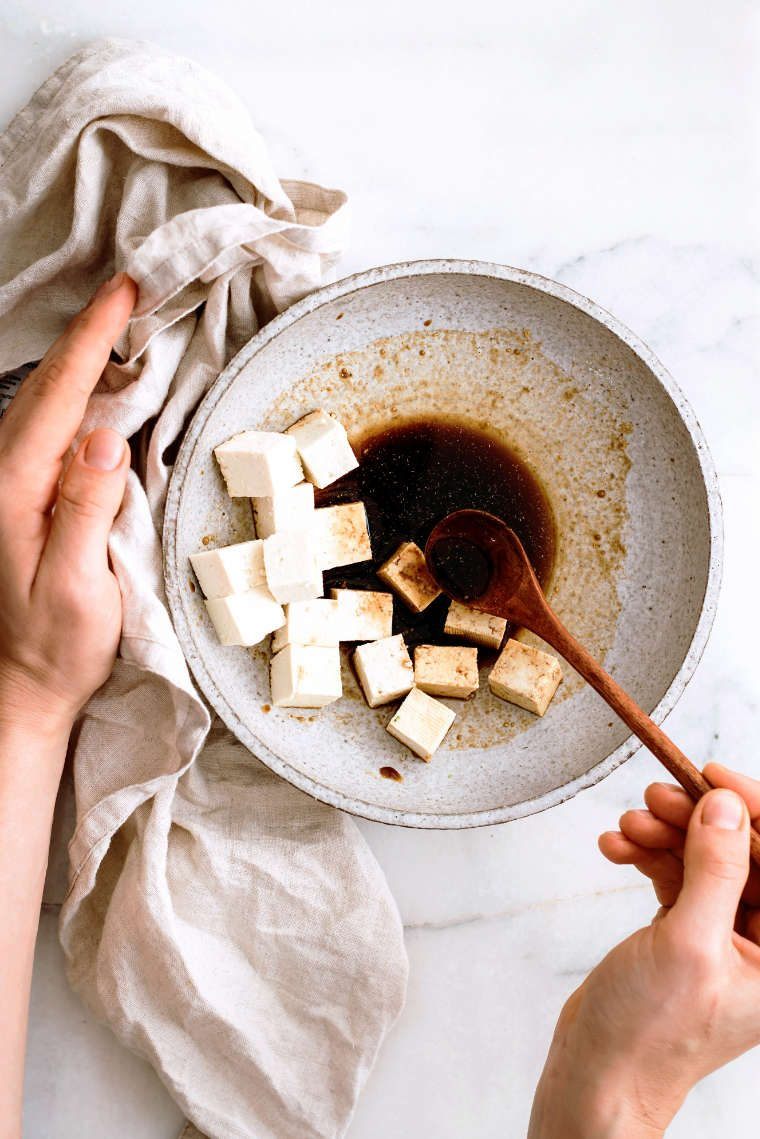
Who shouldn’t eat soy?
If you’re allergic to soy or are on certain medications or treatment programs, such as anti-estrogen treatments, you should not consume any soy.
As a male, you don’t need to worry about soy raising estrogen levels or disrupting hormones, by the way! This controversy stems from animal and lab studies that cannot be compared to human outcomes.
If you’re unsure, speak with a Registered Dietitian and remember that there are many other delicious and healthy legumes to choose from.
Soy and thyroid health
According to a 2019 meta-analysis, soy supplements can raise thyroid-stimulating hormones slightly, but there is no effect on the actual thyroid hormone production.
People with healthy thyroids and adequate iodine intake don’t have to be concerned about any disadvantages when consuming soy!
However, one clinical trial found that the risk of clinical hypothyroidism was increased in people with already existing mild hypothyroidism when taking a high-dose soy supplement.
To this day, research on the topic still isn’t conclusive. But until we know more, people with mild hypothyroidism might want to limit their soy intake and monitor their thyroid function carefully.
Is soy protein isolate bad?
If you’re looking to supplement your diet with plant-based protein, soy protein isolate is a good option! In fact, much of the research done on soy was performed on isolated soy protein.
It’s budget-friendly, contains all 9 essential amino acids, lowers cholesterol and is great for your gastrointestinal system!
Read more about this subject on WebMD.

Environmental impact of soy
Even people who think they don’t consume any soy products often do so unknowingly through the animals they consume.
According to WWF, only a small portion of soy is consumed directly by humans, with the majority (almost 85%) being crushed and used as feed for poultry, pork, cattle and even farmed fish.
Due to the enormous demand for meat, soy harvesting has increased massively and is now contributing to deforestation and the loss of valuable ecosystems in Latin America.
So the answer to avoiding soy or limiting deforestation isn’t to eat less soy… but rather to eat fewer animal products.
More vegan guides
If you enjoyed this article, check out the following ones next!
- Vegan Food Pyramid
- Vegan Low-Fiber Diet
- B12 on a Vegan Diet
- Vegan Questions Answered
- 15 Healthy Food Swaps
Did you know that soy is vegan and healthy? Which are your favorite tofu or soy recipes? Let us know in the comments below and be sure to Pin this article or share it on social media!

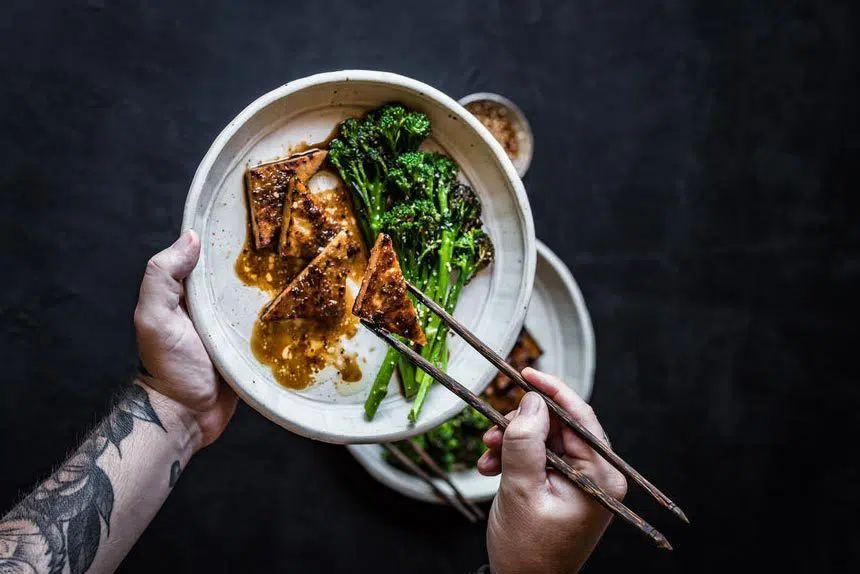
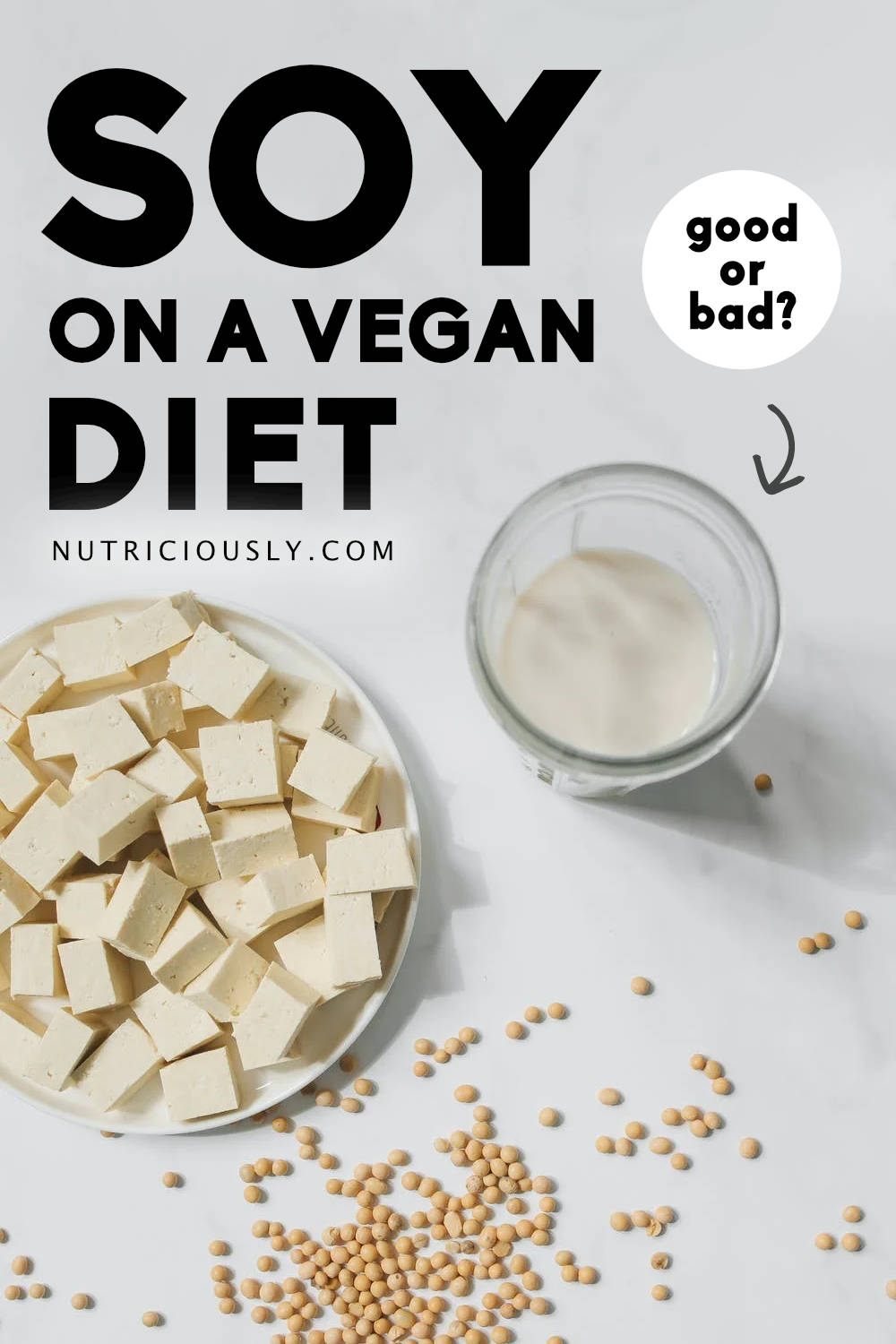
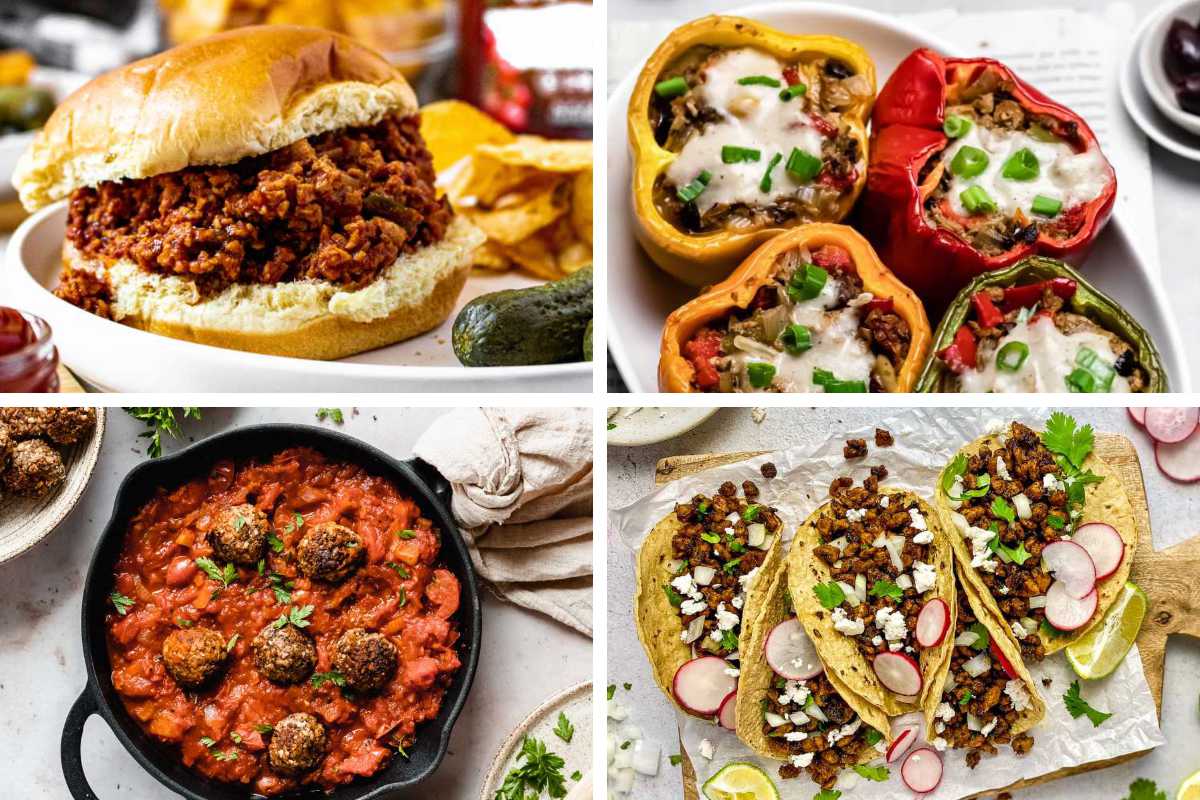

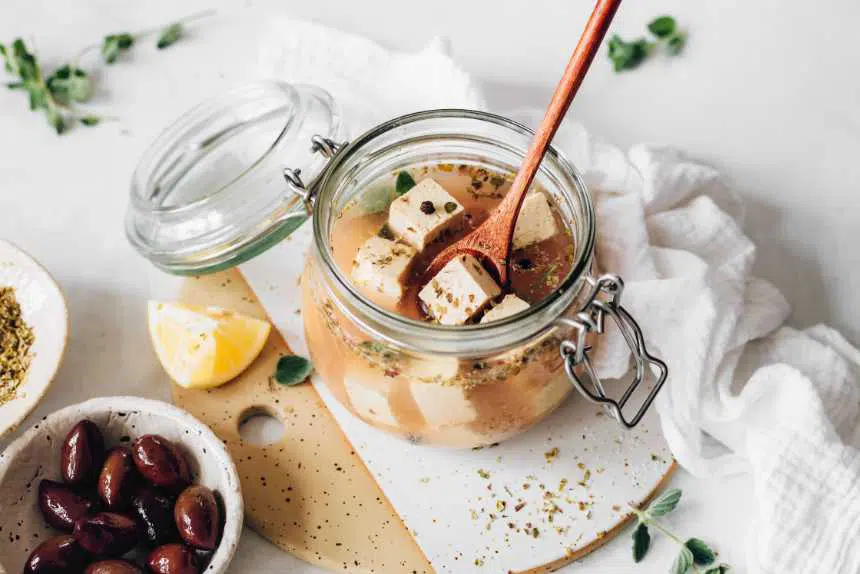
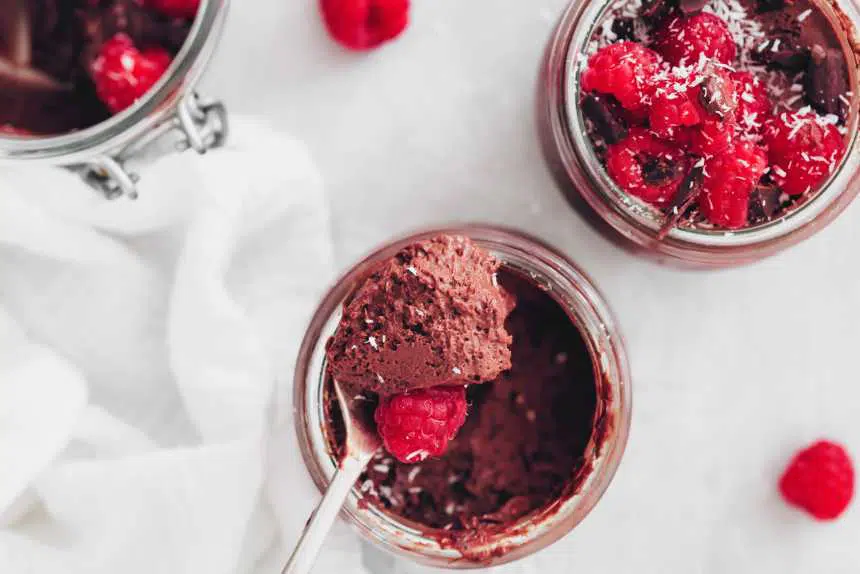
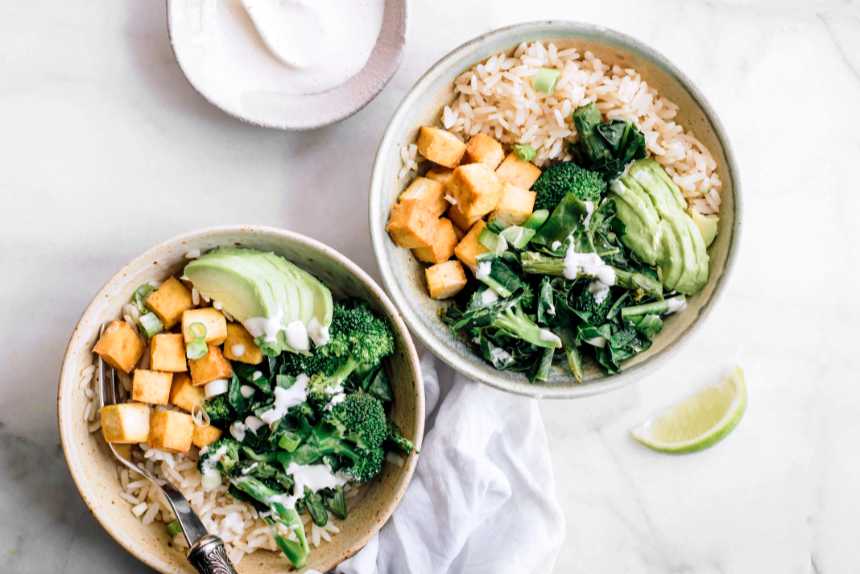
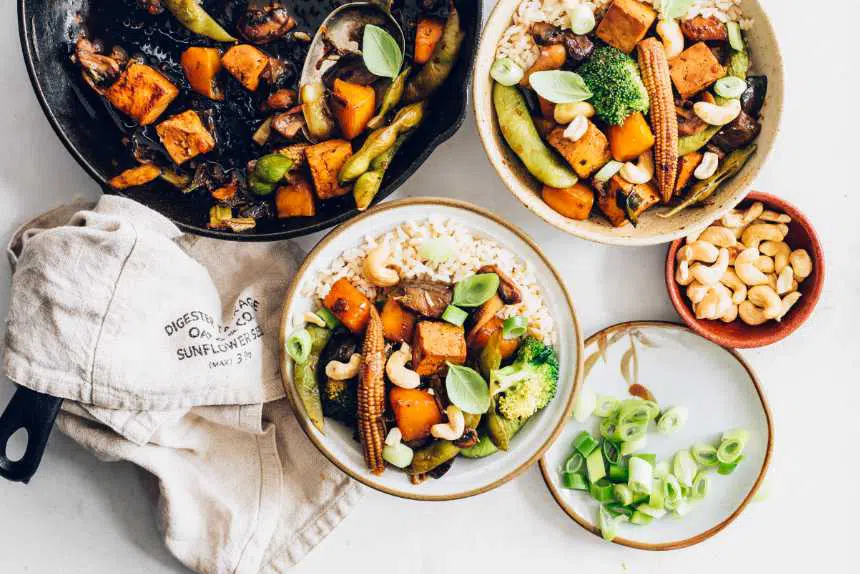
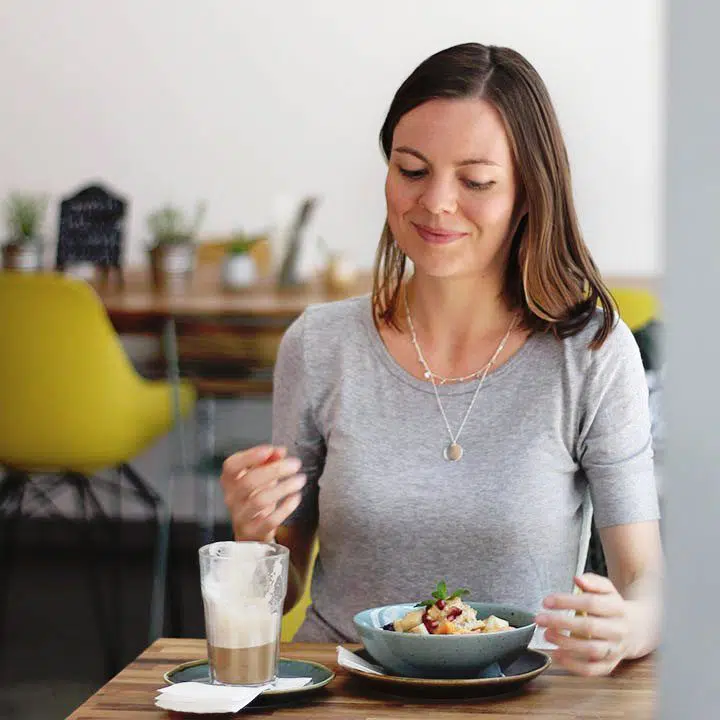
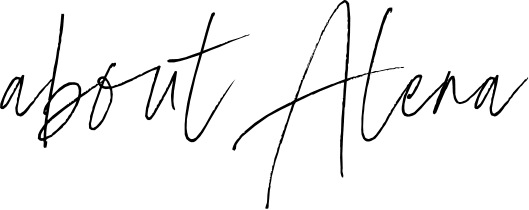 Alena Schowalter is a Certified Vegan Nutritionist who has been a vegetarian since childhood and vegan since 2012. Together with her husband, she founded nutriciously in 2015 and has been guiding thousands of people through different transition stages towards a healthy plant-based diet. She’s received training in the fields of nutrition, music therapy and social work. Alena enjoys discussions around vegan ethics, walks through nature and creating new recipes.
Alena Schowalter is a Certified Vegan Nutritionist who has been a vegetarian since childhood and vegan since 2012. Together with her husband, she founded nutriciously in 2015 and has been guiding thousands of people through different transition stages towards a healthy plant-based diet. She’s received training in the fields of nutrition, music therapy and social work. Alena enjoys discussions around vegan ethics, walks through nature and creating new recipes.
Just transitioned to vegan a little over 2 weeks ago & I was concerned about soy. This article has really helped me understand what I can have, what I should have & what I should avoid. Thank you – very informative!
Hi Kathy,
so glad we could help! It’s one of the more controversial topics within the vegan community and it was about time to talk about this here.
Hope you’re doing fantastic!
Best wishes,
Alena
Sometimes it’s hard to discern the truth behind all the information floating around and this article really sums up all the good and eventual bad of the soy consumption. Ultimately, it’s all about the balance and achieving optimal nutritional intake. Any diet can be (un)healthy but there are numerous health benefits of well-balanced vegan diet even though it might take some experimentation to learn what foods your body best responds to.
Much easier to be healthy on a plant-based diet than on any other that includes animal products because any added trans fats, cholesterol etc. are worse for your health ;)
Poor soy has been getting the bad rep for no good reason but financial interest. Let’s bring it back to the table!
I’m so glad I came across this article! With so much sensational information and conflicting myths out there, this piece summarized all the facts from both side in a clear, concise way. I had no idea about the SPI, for example. Very good to know. Thanks for writing this! I started a plant-based Diet about a month ago and I’m relieved I can include organic soy in my meals without worry.
Thanks so much for the feedback! Glad it was helpful and have so much fun on your PB diet :)
Hey, this is my second year on being vegan now, yay! I would like to ask: Is it true that if women have too much soy it could affect their menstrual cycle? I love having Light Vanilla Soy Milk with my cereal because it gives it a pop of flavor!
Hi Isabella,
soy is a very healthy and great addition to your diet (except if you’re allergic to it). As explained in the article, soy (and other foods containing phytoestrogens) have a positive effect on your hormones… here’s a quote from Dr. Greger: “Soy seems to lower breast cancer risk, an antiestrogenic effect, but can also help reduce menopausal hot-flash symptoms, a proestrogenic effect. So, by eating soy, you may be able to enjoy the best of both worlds.” source: https://nutritionfacts.org/topics/soy/
Bottom line: probably no need to change :) Enjoy the Silk!
I think I cited enough credible sources in the article which you can follow instead of just having to listen to me :)
No need for vegans to eat soy. Most soy is being fed to livestock. Soy for human consumption is most always organic, non-GMO. Eating animals is far worse in every aspect.
Hmm, John, not that I’m a vegan myself, but could you list some research that supports your claims as the author has? Like you make these claims which may have some merit but don’t do anything to back it up, thus it offers little validity in its current state.
I find this very confusing and will research further but wonder if the old women in China are so much healthier than ours because they do Qi Gong or Tai Chi every morning instead of being given free television licences!
Hi Catherine,
I’m sure that a good health outcome is the result of many factors combined. But replacing animal protein with plant-based protein has been shown to be very beneficial: https://www.sciencedaily.com/releases/2017/12/171220091720.htm
Be well,
Alena
Hi,
I came here because of SOY Milk but didn’t see if that is advised as safe or not.
If it is, what is the best SOY Milk to purchase (Brand etc)
Thanks a lot. Great site by the way!
Hey Marcos,
thanks for stopping by. I’d say the best soy milk is made from whole soybeans instead of concentrate and is free from added sugar or tons of preservatives. The soy milk we purchase in Germany only has 2 ingredients: soybeans and water :)
Hope this helps!
This truly helped. The first transition was to a vegetarian when my gallbladder was removed I found that it was less trips to the bathroom, less cramps, and overall felt more energetic. However I did have a few cheats. I love turkey and cheese and haven’t found good alternatives. When I found that I am infertile due to my weight I decided all the way vegan it was with a great $10 membership to planet fitness. So I’m super confused on what to eat and what not to eat I tried Silk dairy-free yogurt but got a little worried when I seen Soy. So this article was great to find.
Hi Quinn,
thanks for sharing! Happy that we could shed some light on this topic. Feel free to join our free course (in the menu) or read more free articles on transitioning to and eating a healthy, cheap vegan diet :)
All my best,
Alena
I was just watching a video by gersons and she said that everyone should avoid soy completely. Reason being that there isn’t anything to absorb. Basically, she’s saying it causes malabsorption. The thing is, I’m vegan and I eat soy every now and then as curry or I might make black bean tofu. (forgot to add that I consume Soy in the form of Tofu only). I’m glad you posted this article, I’ve been watching videos on nutritionfacts.org but I’m still not 100% satisfied with everything I’ve read so far. Thanks for this informative article!
Hey Christina,
thanks for sharing. I truly get it, nobody seems to agree on nutrition topics. If I were you, I’d wonder which proper studies have caused Gerson to say these things about soy or whether it’s just a theory. Nice that you’ve been watching Dr. Greger, keep educating yourself so you can come to a conclusion :)
Best wishes,
Alena
This truly helped. Thanks for sharing <3
If a ingredient label says milk (,)comma soy does that mean it’s diary free?
good question! Pretty sure that this just means soy milk but maybe you can ask the producer in that case. Sometimes, it’s also labeled as vegan or dairy-free :)
Thank you for this article!
Although I am still unsure in regards to tofu and meet replacements that tend to be made with Rehydrated Soya Protein, are these supposed to be eaten as a treat as mentioned on the articule or are they safe to have on several meals a week?
Hey Rita, thanks for your comment! Not sure what you mean by rehydrated soya protein but I imagine it being something like textured veggie protein which you can use to replicate bolognese sauce, for example.
The question I would ask is this: what does it replace and how much of the original food has been taken away? If you still have the fiber, minerals etc. from the soybean then it seems like a healthy choice. If you eat it instead of meat, it’s a really, really healthy choice :) if you eat it instead of broccoli, might be less healthy but definitely still has a place in a healthy diet. Sure, I’d eat it several times per week personally.
Hope this helps!
Thanks for info on soya .Am taking thyroxine and not keen to keep increasing amount.
Hi, thank you for the article it helps me a lot!!!!!!!!!!!!!!!!!!!!!!!!!!
I was vegetarian sinds I was 20 years old (23 years ago) in 2011 I went to vegan. I was always afraid of all the things I heared about soy. But it is so difficult for me to get all the protiens from other vegtebles because I have intestinal problems.
I’m now 43 and trying to concieve (I know that its old…) so I’m so afraid of doing somthing wrong. My clock is tikking by the hour. I know I will become pregnant. I really belive that. But I have so many worries about a lot of soy during pregnancy. I know use a organic soy protein powder every day so I get extra protiens. Is it ok to use it every day? And also during pregancy? I drink it whith soy milk because I like the taste of soy milk. I dont eat a lot of meat replacments or tofu. Only a few times a week.
I hope you can give me an answer.
I’m from Holland and here all the nutriests speak so bad about soy. But what can I eat? For me it is hard with my intestinal problems.
Sorry for this long writing.
The question: can I take a organic soy protein powder every day, and also during pregancy? And can I give it to a baby when its 1 year old.
Sorry again for the long writing.
Thank you for all your help!!!
Thank you for this article and the clarification on soy. I truly enjoyed reading it. For a long time I had been afraid to eat to many soy based products. I was diagnosed with breast cancer in 2004 at the age of 31. I went through all the necessary treatments and surgeries for almost a year before I went into remission.
In 2007 I started working for an Indian doctor who drank a lot of soy milk and she had me hooked on it! I was drinking a lot of it for years. Then in 2013 I hadn’t been feeling well and was sent for testing only to find out that my cancer had returned and metastasized to my thoracic area and I was devastated! I had heard negative things about soy increasing the risk of breast cancer and had blamed myself for years. However, my middle daughter, who has been vegan now for 6 years, had told me that she read differently and said that it was safe. My cancer continues to spread and then improve and spread again so I decided as of January 19th of this year to jump right in and become vegan, with my daughters persistence lol. My tumor markers have come down every month and has me looking forward to a longer future.
However, my recent PET Scan shows more Mets so now I’m looking to go completely oil free, whole food Plant based and I am excited for this journey.
So again thank you for this article because I was ready to go back to my old eating habits.
Christine